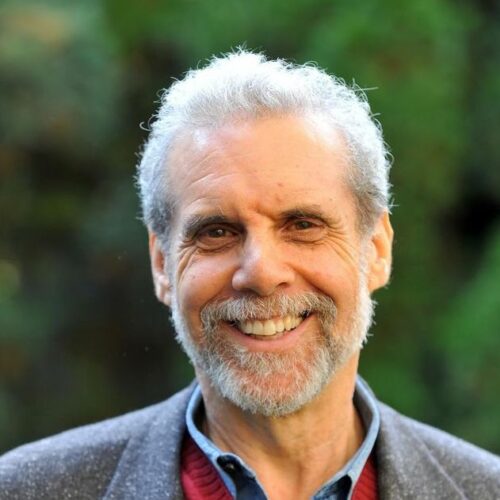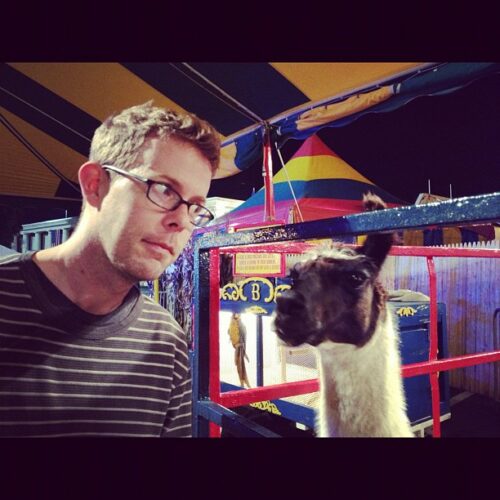Elizabeth Solomon 0:00
Tell me about a time that you had a strong feeling what happened?
Isis 0:04
Me and Jonah will in a fight.
Mataya 0:08
When my grandma my my great, great grandma died. I don’t even know her that much.
Elizabeth Solomon 0:16
But you had a strong feeling. What was the feeling?
Mataya 0:23
like so angry and sad?
Michael 0:28
Well, I was playing with my friends. And they said I could play and then they passed the ball to me once and then they started playing without me.
Ari 0:42
Michael was my mamas brother… so now he’s in heaven and I really really miss him.”
Hanuman Goleman 1:03
Welcome to this special episode where we review the basics of emotional intelligence, where we begin to identify emotions at a very early age. How we experience and talk about our feelings gets more complex as we get older. 25 years ago, Dan and his colleagues popularized the new way of thinking about emotions called emotional intelligence. Dan has always said he didn’t invent emotional intelligence. He codified it, he wrote about it, and now he has spent much of his career researching its applications and impact. If you’re new to this work, or need a refresher, this episode goes over Dan’s model of emotional intelligence. His model has four domains. Within each of those domains are a series of competencies, each having to do with a different aspect of emotional intelligence. Throughout this episode, we include clips from crucial competence, a video series of conversations on emotional intelligence between Dan and his colleagues. If you’re interested in delving deeper into emotional intelligence and Ei research, including the brain science behind it, crucial competence can be purchased in full from the keystep media website. If you’re a visual learner, you can also find what we affectionately call the bubble map, a graphic outlining Dan’s competency model. Let’s get started.
Daniel Goleman 2:24
I first became aware of the importance of something that I later realized was called emotional intelligence. When I went to my 20th high school reunion, and it turned out that the kid in my class who was most successful in his career wasn’t the valedictorian, the kid with the highest grades wasn’t the kid with the highest test scores on the college entrance exams, actually was someone I knew pretty well, in high school, he was a great person, but an average student, he was the kind of person you like to do things with, who really listened to paid attention, who was very respectful, who made you feel good about yourself, and who was a joy to be with. And 20 years out, he was not only the most successful, he’s senior vice president of a major company, then, at the 43 year old, I found out he ended up owning his own company sold it when the market was really high. When I started thinking deeply about emotional intelligence, I was thinking to two levels, one has to do with three grown ups, people who are parents, in the workforce leaders. I see emotional intelligence is essential to being effective in each of those domains, because we’re really talking about human skills about what it’s like to be an effective person, to manage ourselves, well, to know ourselves, to tune into the people around us and to use all of that, to be effective in our relationships, whether it’s within a family, with our friends, at work, as a leader, what, whatever situation we find ourselves in, we need some aspect of all aspects of emotional intelligence. And so I see part of what I’m doing is kind of adult education. You know, it’s never too late to get better at emotional intelligence. But the other area has to do with kids. Making sure that the movement to teach emotional intelligence to kids, which is now called social and emotional learning, was well documented that it was well evaluated, that we knew that it mattered.
Hanuman Goleman 4:47
One of our grassroots supporters for this season asked this:
Brian Sosnin 4:51
Hello, my name is Brian Sosman. And I want to thank all of you for creating this important podcast. I would like to know the basics of emotional intelligence. Starting with what you believe is the best definition of emotional intelligence, and what you believe are the core most basic and foundational principles of emotional intelligence?
Daniel Goleman 5:11
Brian, that is a terrific question. It’s one I’m often asked in one form or another. And in fact, I’ve spent most of my career studying the answer to that question, let me dive in. Emotional Intelligence refers to a different way of being smart. It’s not your IQ. It’s how you manage yourself and your relationships. It’s not usually taught in schools, you learn it at home, on the playground or in the office.
There are four parts to my model of emotional intelligence: The first is self awareness. The second is self management. Then there’s social awareness or empathy. And the fourth is relationship management. Within each of these four parts, these four domains, there are learned competencies, the self management competencies, our first emotional self awareness, then emotional balance, positive outlook, the drive to achieve and adaptability. The relationship competencies are empathy, organizational awareness, influence, being a coach and mentor, inspiration, teamwork, and conflict management.
Self Awareness lies at the heart of emotional intelligence. emotional self awareness is the ability to understand our own emotions and their effects on our performance. You realize how your feelings affect you and how well you’re doing. Your values and sense of purpose help set your course of action. As a leader, it can be candid and authentic. And you can speak with conviction about your vision. Self Awareness isn’t something that you achieve once and then you’re done with it. Rather, every moment is an opportunity to either be self aware or not. In this way, it’s a continual endeavor, it’s a conscious choice to be self aware. The good news is that the more you practice it, the easier it becomes.
My freshman year in college, there was a kid down the hall from me, who had perfect scores on his college entrance exams. And that was great. He had a very high IQ. But he had a problem, couldn’t get out of bed before noon, never went to class never finished his papers on time, to come about eight years to get a four year college degree. And what I realized, in retrospect was that what he lacked was motivation. He just couldn’t manage himself. He was very poor in that second part of emotional intelligence, self management, and it really cost him. And then as I’ve gone on through life, I’ve seen more and more evidence that people who will have a good enough IQ to have you know, high level job and so on. Just don’t make it as leaders or as team members, if they have a deficit in emotional intelligence.
Self Awareness helps us know what’s going on. But then the question is, how do we apply that?
So the first competence in this set is called emotional self control and it doesn’t mean suppressing emotions. It has to do with disruptive emotions, emotions that get in the way, high anxiety or intense fear or quick anger, whatever it may be. emotional balance or emotional self management is the ability to keep your disruptive emotions and impulses in check to maintain your effectiveness under stressful or even hostile conditions. With emotional balance, you find ways to manage your emotions and impulses. You stay calm and clear headed under stress, even during a crisis. positive outlook is the ability to see the positive in people in situations and events. It means persistence in pursuing goals despite setbacks and obstacles, you can see the opportunity in situations where others would see a setback that could be devastating, at least for them. But you see things positively. You see others positively. You expect the best of other people is that glass half full outlook that leads you to believe that changes in the future will be for the better.
The achievement competence means that we strive to meet or exceed a standard of excellence. We look for ways to do things better. We set challenging goals, we take calculated risks. There’s a big paradox about achievement orientation, and that is when you have positive goals, it’s very helpful. But if you stay in this overdrive all the time and try to drive other people in the same pace, you can become a toxic leader actually and Paradoxically too, even though achievement drive helps you get your career goals, it may make you unhappy in your life. adaptability is another very crucial competency in self management.
The adaptability competence is flexibility and handling change and juggling multiple demands, adapting to new situations with new ideas or innovative approaches. It means you can stay focused on your goals, but easily adjust how you get there. You can meet new challenges and you’re nimble and adjusting to sudden change. You’re comfortable with the uncertainty that leadership can bring.
I had a friend and Terry Dobson, who was one of the people who brought Akito, the Japanese martial arts to America. when he was younger, he was a US Marine when he got out of the Marines. His idea of a good time was to go to a bar, get really drunk, get in a fight. That was terrible. But he stayed in Japan after he was released from the Marines and decided to learn a martial art. This was very new in those days, but his teacher told him, I’ll teach you but you have to take a vow that you will never use these martial arts except in self defense, or to protect someone else. Terry took that vow. And one day he was on one of those crowded Tokyo subway trains on the way home from the dojo. And all of a sudden at one stop this huge guy who was very drunk, a laborer, very dirty turns, gets on the car and he’s kind of backing away and is drunk, very belligerent, says, Okay. Basically, he wants to pick a fight. And he says, who’s gonna fight me? And everybody’s cowering. Terry, however, thinks this is my moment. He stands up, and is like high noon on the subway car, there’s two guys are facing each other. And the drunk starts to stagger toward Terry, as he staggered down to somebody’s car, this little, little man in a traditional Japanese Comodo pipes up he says, hey, what you’ve been drinking in a very friendly tone, and the drunk is kind of startled and looks at him says, Saki, what’s the to you? And the old man says, Oh, I love Saki, come sit here next to me and tell me all about it, that the drunk slumped down in a chair next to the old man. The old man says to the drunk, you know, my wife. And I like to sit under our favorite persimmon tree in our garden at the end of the day, and talk over the day with each other. And it that the drunk says, You know, I ain’t got no wife and got no home, I ain’t got no job. I’m so unhappy. And that he puts his head on the old man shoulder and starts weeping. That cherry sees there’s no danger. He gets off at the next stop.
The empathy competence means you have the ability to sense others feelings and how they see things. You take an active interest in their concerns. You pick up cues to what’s being felt in thought. with empathy, you sense unspoken emotions. You listen attentively, to understand the other person’s point of view, the terms in which they’re thinking about what’s going on. empathic leaders are able to get along well with people of very different backgrounds and cultures, and to express their ideas in ways the other person will understand. Empathy doesn’t mean psyching out the other person so you can manipulate them, but rather, it’s knowing how best to collaborate with them.
Organizational awareness means the ability to read a group’s emotional currents and power relationships, identify influencers, networks, and the dynamics that matter in making decisions. A leader who can recognize networking opportunities and read key power relationships will do a better job at leading. Such leaders not only understand the forces at work in an organization, but also the guiding values and unspoken rules that operate among people. influence is a competence refers to the ability to have a positive impact on others, to persuade or convince them to gain their support.
With the influence competence, you’re persuasive and engaging and you can build buy in from key people. Among the helping professions influence was the strongest competence. A helping role comes down to whether you can connect with people’s understanding of what matters See their perspective and use that insight to communicate powerfully in physicians, it means that their patients comply with what the doctor tells them to do, whether exercise more or take their medicine. Remember, leadership is the art of getting work done well through other people. And influence is the most powerful way to do that.
The emotional intelligence competency we call coach and mentor is the ability to foster the long term learning or development of others. By giving feedback and support. You have a genuine interest in helping them develop further strengths. You give timely, constructive feedback, you understand the person’s goals, and you try to find challenges for them. That would be growth opportunities. Here’s some findings from my colleague Richard Boyatzis. Coaching strengthens relationships, loyalty and trust. His research finds that if you coach to people’s dreams and values, those coached are able to change for the better. If you coach for compliance, that is how you want them to be rather than toward their own goals, you have a negative impact. The inspirational leadership competence is the ability to guide people to get the job done to bring up their best. With inspiration, you can articulate a shared mission in a way that motivates and offers a sense of common purpose. Beyond people’s day to day tasks.
There’s a Japanese saying that all of us are smarter than any one of us. research says the same thing. studies find that groups make better decisions and are more effective than any specific individual on that team. Teamwork is the ability to work with others toward a shared goal, participating actively sharing responsibility and rewards and contributing to the capability of the team. you empathize and create an atmosphere of respect, helpfulness and cooperation, you can draw others into active commitment to the team’s effort. Leaders skilled at this competence builds spirit, positive relationships, and pride of identity at being on the team. And it’s not just teams. This competence holds the key to collaboration of any kind.
A conflict management competency means the ability to help others through emotional or tense situations, to tactfully bring disagreements into the open and to define solutions that everyone can endorse. leaders who take time to understand the different perspectives work toward finding a common ground on which everyone can agree. They acknowledge the views of all sides, while redirecting energy toward a shared ideal, or an agreeable resolution. Clearly being able to manage conflict matters for leaders. But that doesn’t mean convincing other people that yours is the correct opinion. There’s a difference between winning and effectively managing conflict.
Richard Boyatzis and I developed an instrument to help people who want to develop further strengths in emotional intelligence. It’s called the emotional and social competence inventory. It’s a 360 degree measure meaning if you’re going to take it, you take it, you evaluate yourself, but then you ask, you know up to 10 people who know you well, and whose opinions you value and trust, to rate you anonymously, so they can be very honest. And then that information is fed back to you. As an aggregate, you don’t know who said what particularly but you get a profile of your strengths and weaknesses. And this is really valuable news to us because you can see yourself as others see you. And also understand that things you think you may be very good at, is really seeing that strong in people who work with you or know you well. And that helps you identify where you want to work and you want to work on one competency at a time. And here I’d also like to mention, if you can’t afford a coach, you know the ESCI is designed to be used with a coach, you might want to look at our emotional intelligence learning paths. And this is for anyone who wants a better understanding of emotional intelligence and wants to get better at different aspects of it.
Hanuman Goleman 19:42
If you know anyone who’s just beginning to explore emotional intelligence, our hope is that this episode can serve as a valuable starting point. If you’re interested in delving deeper into emotional intelligence, including the brain science behind it, the video series crucial competence can be purchased info from the key step media website.
Elizabeth Solomon 20:04
Thanks for listening to first person plural emotional intelligence and beyond. Stay tuned for our first full episode on the topic of purpose and well being coming soon. Subscribe now and sign up for our newsletter to get notified as new episodes are released. For transcripts and resources mentioned in today’s episode, check out our episode notes on our website: FirstPersonplural.com thank you to Isis, Mataya, Michael and Ari for sharing your voices with us at the top of the episode. This episode was written and produced by Gabriela Acosta and me Elizabeth Solomon. Episode art and production support by Brian Johnson Theme Music by Amber Ojeda. Until next time, be well.
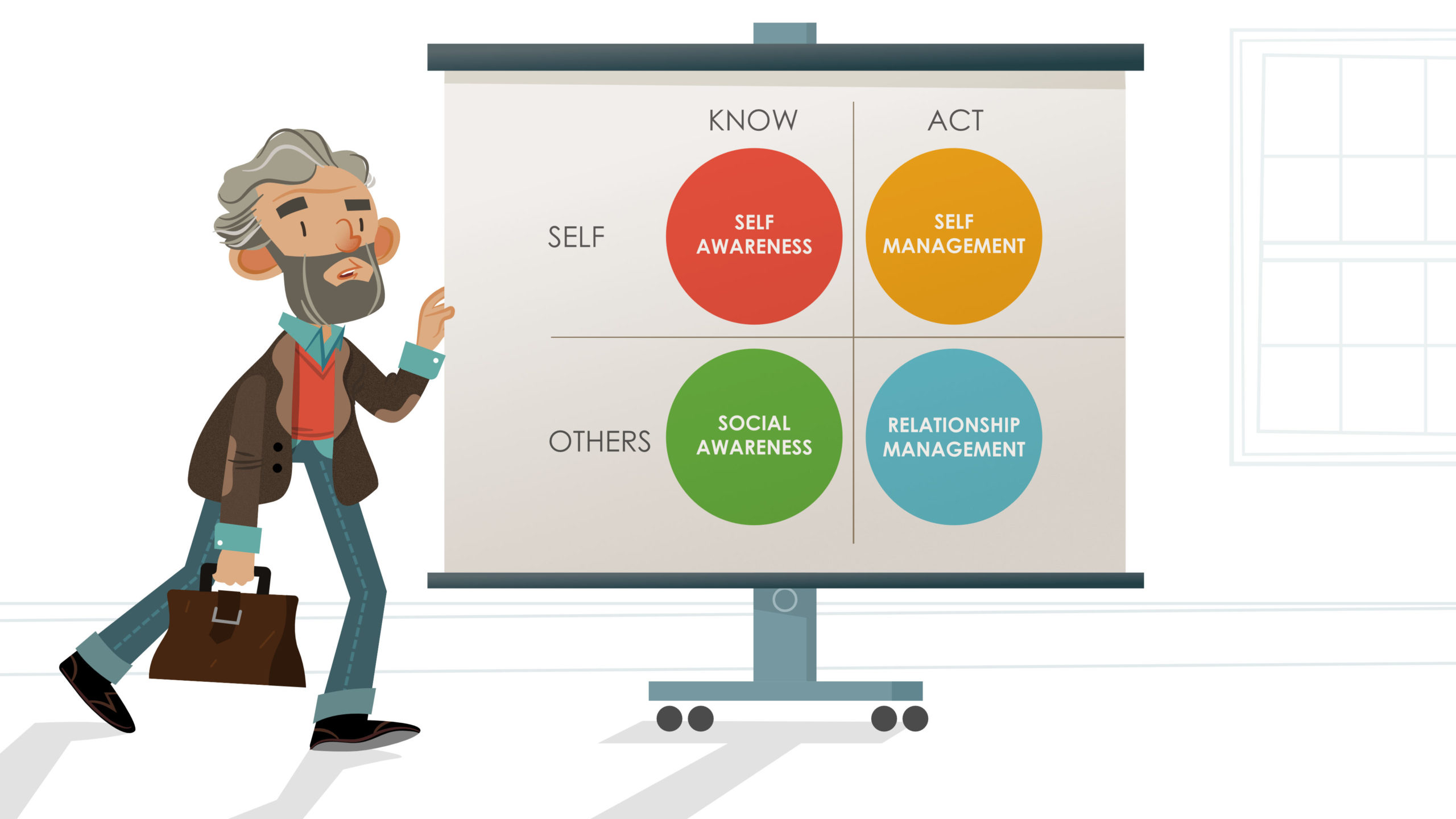

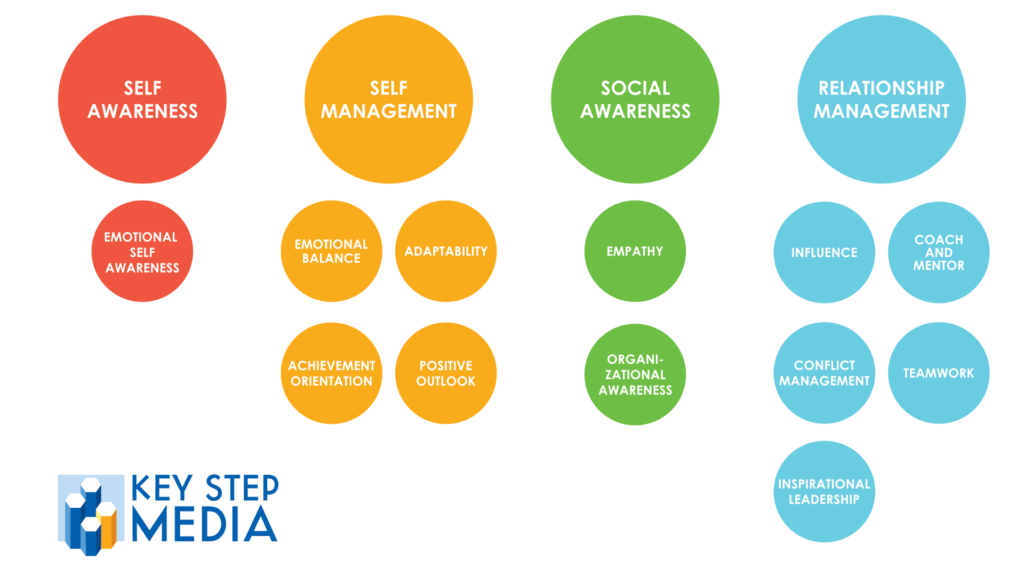


 https://www.keystepmedia.com/
https://www.keystepmedia.com/
 @https://twitter.com/danielgolemanei
@https://twitter.com/danielgolemanei @https://www.facebook.com/danielgoleman
@https://www.facebook.com/danielgoleman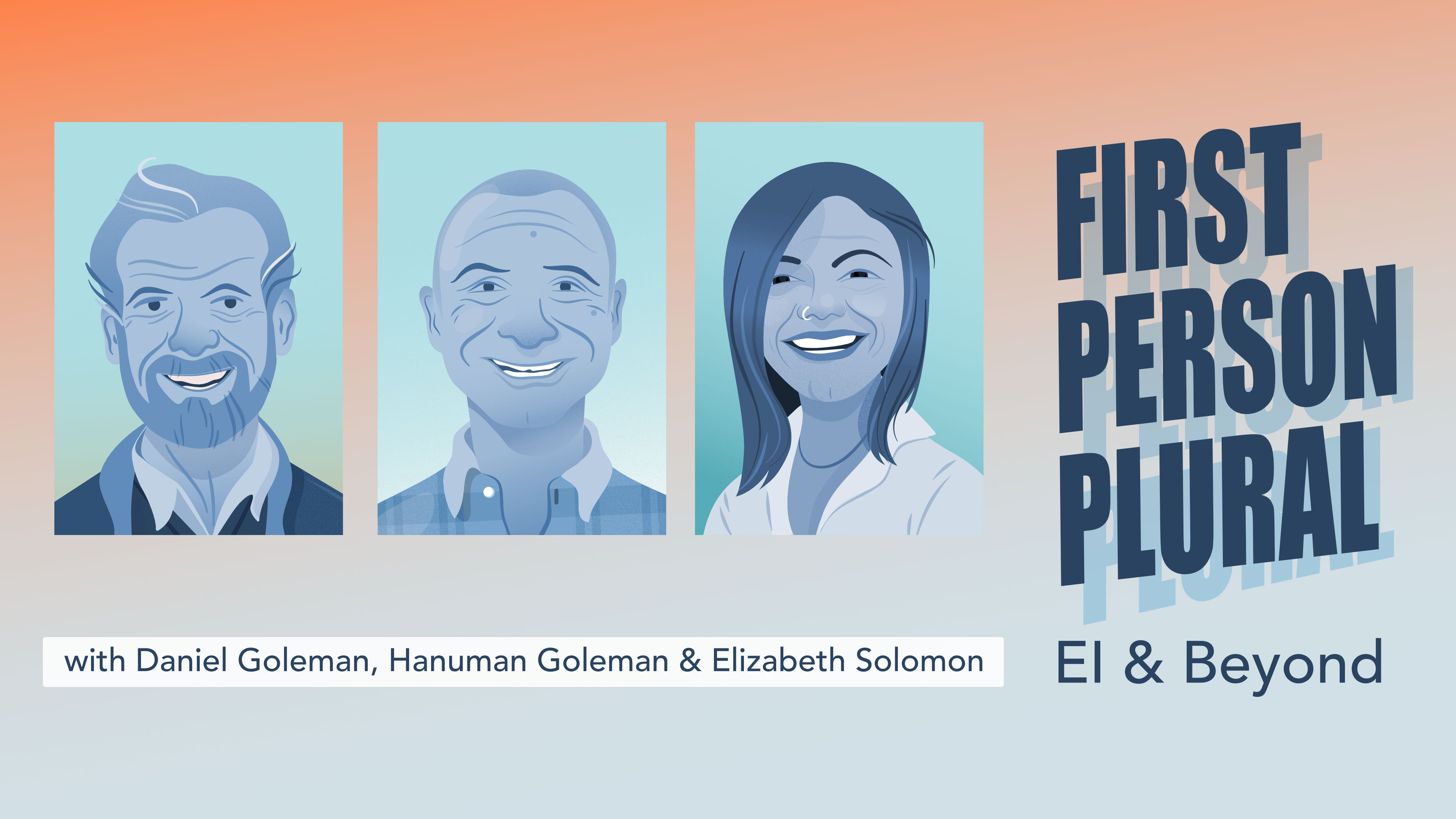
 Apple Podcasts
Apple Podcasts Google Podcasts
Google Podcasts Spotify
Spotify